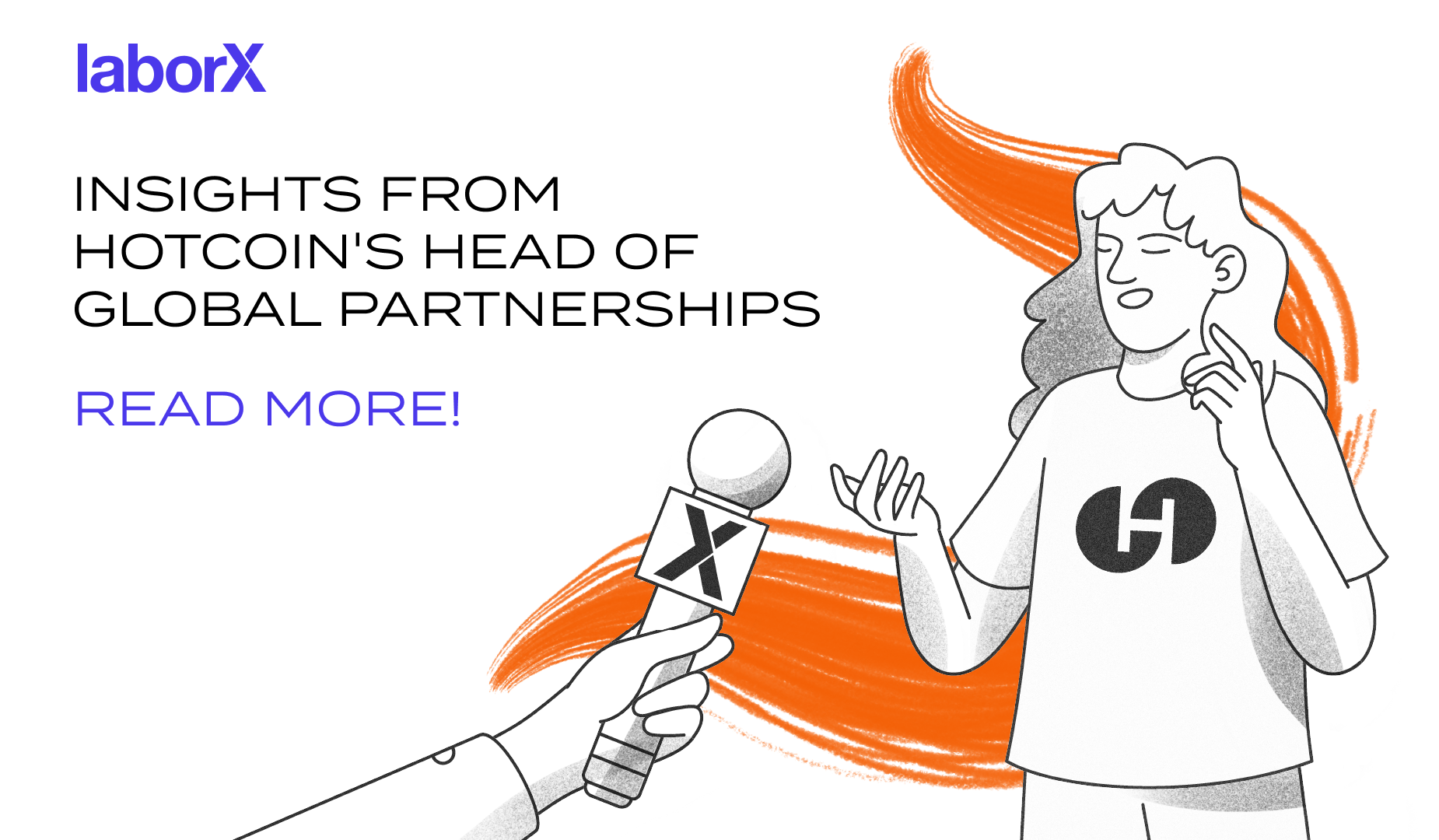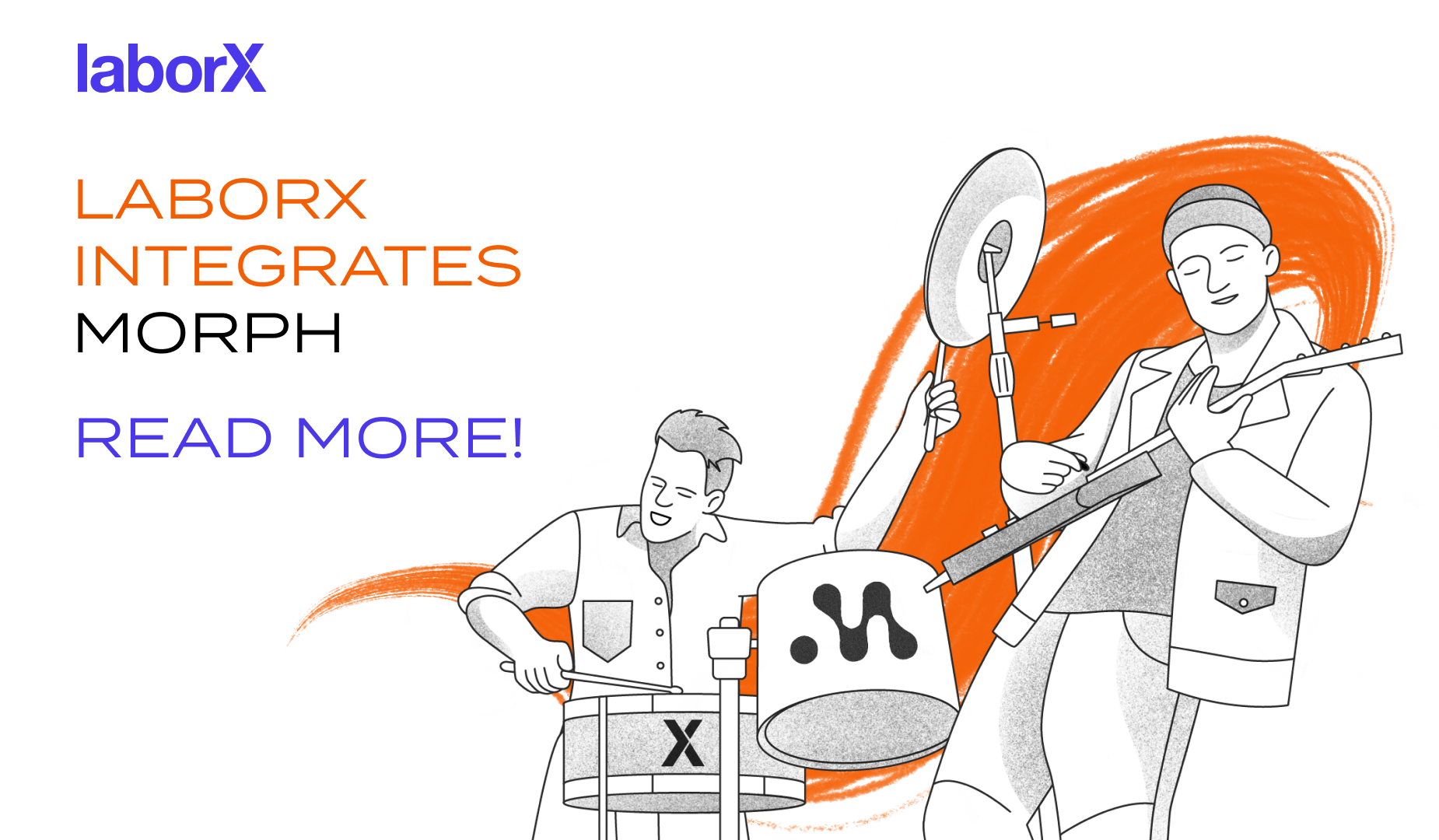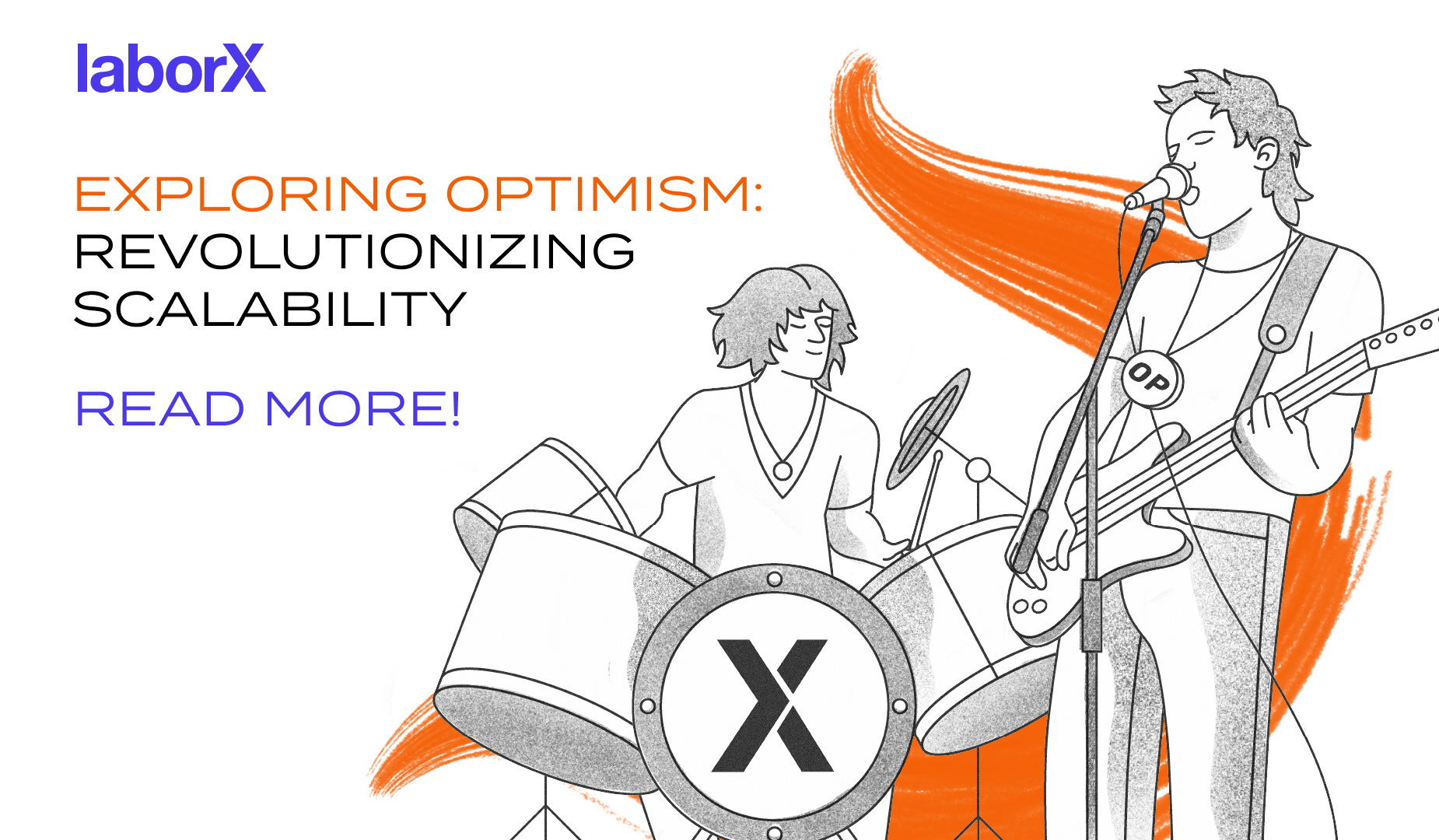As a raft of exciting and fast-moving technologies begin to mature and break into the mainstream, big changes are coming for the workplace.
The last few years, and particularly 2023, have seen rapid acceleration in the development of a series of key technologies. While many of these have been around in some form for years or even decades, step changes in the capabilities of these systems have opened new use cases and possibilities.
Now, technologies including blockchain, artificial intelligence and xR are enabling whole new ways of working, playing, and interacting with online services. These will undoubtedly change the world in ways we cannot yet fully imagine – but we’re starting to understand the overall direction of travel.
The Key Technologies Of The New Economy
There are several technologies that will affect how we find work, interact with employers, colleagues and customers, get paid, and organise our overall economy. These include blockchain, AI, and a suite of visual technologies (AR, VR, and MR) that enable the creation of new interfaces.
Blockchain
A blockchain is a decentralised ledger that allows transactions to be recorded securely, transparently, and immutably across a network of computers.
The power of blockchain lies in its ability to remove points of trust and friction from different services, by cutting out the need for intermediaries. While cryptocurrency (peer-to-peer cash) has been blockchain’s first and most popular use case, the technology can be used to run complex software of all kinds without any middlemen or single points of failure, bringing greater confidence, integrity and efficiency to industries including finance, supply chain management, healthcare, and more.
Blockchain is one of the core technologies of Web3, the decentralised internet, and the bedrock of a new generation of trustless, community-run applications and platforms.
AI
Artificial Intelligence is a field of computer science that focuses on developing systems and software that are so sophisticated that they can solve problems that would otherwise require human-level intelligence. AI encompasses a wide range of different elements, including machine learning, natural language processing, computer vision, and robotics.
The strength of AI systems lies in their ability to analyse vast amounts of data, recognise patterns, make predictions, and learn from experience. This incredibly powerful technology can be used to automate tasks, carrying them out quickly and accurately; improve decision-making processes; and provide highly targeted solutions for a range of problems and challenges.
There are few areas of the economy that will not be transferred by AI, which has already found applications in diverse areas including healthcare, finance, transportation, and entertainment.
xR
xR or eXtended Reality is an umbrella term that encompasses a series of visual technologies including Virtual Reality (VR), Augmented Reality (AR) and Mixed Reality (MR). VR presents users with entirely created (virtual) environments, while AR overlays digital information onto the real world, and MR aims to seamlessly merge virtual and real elements together.
By revolutionising the way we experience and interact with digital content of all kinds, xR offers applications across the whole economy, including gaming, education, training, design and more.
The Metaverse
These three technologies are critical pillars of the Metaverse: the immersive, content-rich, interactive and social environments that provide shared online spaces – offering intuitive and life-like ways to find information, communicate, collaborate, learn, consume entertainment, and access many other digital services.
Early Applications
These technologies are already making their mark on the world of work, play, entertainment, healthcare, finance, and much more.
- Blockchain was the big narrative for 2021 and 2022, gaining widespread traction with use cases across finance – as a store of value and in enabling decentralised financial services – supply chain management, provenance tracking, and more.
- AI has been the stand-out technology for 2023, with ChatGPT-4 gaining 100 million users within two months of launch, and proving just how powerful and useful artificial intelligence can be – as well as posing serious ethical questions. But away from the big headlines, we’re seeing AI have a staggering impact on different sectors: crunching through vast amounts of data to help discover new antibiotics and improve cancer treatments, enhancing and automating customer service, reducing fraud, and tailoring educational programmes, to name just a few.
- xR applications have already been launched in the fields of medicine, exercise, entertainment and education, enabling users to visualise ideas and surroundings in new ways. Apple hopes that its Vision Pro headset will revolutionise the space in a way that previous headsets have not, thanks to its incredible hardware quality and user experience (as well as a great application of AI and machine learning in its ability to recreate facial gestures in users’ photorealistic avatars). Gesture control opens up a whole new way of interacting with apps, to the point where it’s possible to see not just how this technology could complement conventional devices, but actually be their next evolution.
- The Metaverse was another big theme of the last couple of years, as COVID lockdowns meant people had to find new ways of consuming entertainment. As well as games and social apps, a growing number of mainstream music events took place in the metaverse, with artists including the Foo Fighters, Travis Scott, Justin Bieber and Ariana Grande. The metaverse integrates well with blockchain, with NFTs providing new ways to sell tickets and offer holder-only perks. And, of course, advances in xR only make the metaverse more lifelike and accessible.

How Might These Technologies Impact Employment?
These technologies are not just iterations on previous innovation. They offer fundamental change in the way we access different services. Crypto and blockchain enable peer-to-peer interactions, removing the reliance on third parties (which comes with hidden costs and loss of privacy) that is the foundation of Web2. AI allows analysis and processing of information with a level of power that enables entirely new use cases. And xR gives us a way to interact with digital services that is as different to conventional user interfaces as TV and film is to books.
As such, they promise to completely change the way we access work, as well as every other area of life. The implications are too far-reaching to summarise, but can perhaps be illustrated with an example.
It’s Monday morning, and you’re looking for a new job. In the past, this could be a lengthy, manual process of scouring jobs sites, composing targeted CVs and cover letters, sending them off, and waiting weeks for a response. Fortunately, it’s not the past any more.
You pull on a headset and instruct your AI assistant to find all the jobs on major websites that suit your skills, experience, and salary requirements. (Location is rarely a problem, since the vast majority of jobs in your sector can now be done remotely.) The AI filters thousands of possibilities and comes up with a long list of a few dozen of the best opportunities, displaying them as an array of cards hovering in front of you in your living room.
Using gestures, you give them a rough sort, picking out the ones you like the most and bringing them to the top. You instruct the AI to create a tailored CV and application based on your education and experience (which is recorded on the blockchain using soulbound tokens, to give prospective employers the proof they need) for the best five, and within a minute the documents are heading to five different employers. You decide to take a walk in the park while you wait for them to be processed, but you bring your headset with you in case you need it – these things don’t take long.
Somewhere in five locations around the world, the recipient businesses are conducting a preliminary filter on hundreds of job applications coming in, including yours. Since there are few restrictions on location, the recruitment process is far more open than it used to be, and businesses can tap into a global labour market.
You make the initial cut with one of the employers, and they request a meeting to allow both of you to find out more. Because in the first round this happens with an AI chatbot, it can take place immediately. You put on your headset and take a seat at an empty bench. At least, it’s empty in the real world; in your headset’s mixed-reality mode, there’s a smart but casually-dressed man sitting next to you. You spend twenty minutes discussing your potential role at the company. He also asks a series of questions that are clearly designed to test your knowledge and experience. There are also questions that appear to be unrelated to anything about the job. You know that your answers are being fed through a machine learning algorithm that searches for patterns and uses millions of different data points to gauge whether you are, statistically, a good fit for the job.
It turns out you are, because by the time you get home you’re invited to meet a real, human member of the human resources team in the company offices – or, at least, in a virtual representation of the office in the metaverse. After a conversation (regulation requires that major hiring decisions are human-approved), you’re hired! Your onboarding process is handled by another AI agent, who – as well as walking you through what you need to know – provides you with an NFT that will give you access to areas and people you’ll be working with in the company’s metaverse office.
Adopt And Adapt, Or Opt Out?
The transition between our existing way of life and the future economy will not always be easy. Many authorities have warned of large-scale job losses due to AI (the World Economic Forum estimates 83 million job cuts over the next five years alone), though many more will be created. It won’t all be good, or bad – but there will be change.
This brings a number of challenges, and broader questions about how we understand work and our role in society.
- Will AI create as many jobs as it replaces, or will a growing percentage of the population be unemployed? If so, do we need some form of universal basic income (UBI), and how would that work in practice?
- As it becomes easier than ever to work remotely and get paid seamlessly, no matter where employers and employees are in the world, workplaces and companies will become more dispersed. The traditional view of a company will evolve. The importance of the gig economy will grow, as employers become more able to hire a flexible, on-demand workforce thanks to instant access to a global pool of qualified talent.
- The transition from conventional companies to flexible, dispersed ones will need managing carefully. While the freelance economy will continue to grow, businesses will need to retain talent and institutional knowledge that cannot easily be replaced. New ways of engaging core employees and offering incentives packages may be needed, potentially powered by tokenised models – as many Web3 companies already do.
There is also the valid decision of choosing not to use certain technologies, instead emphasising other priorities, such as in-person interactions, local communities, the role of work in creating identity and meaning for individuals, and consciously shaping culture rather than passively accepting the attention economy. There may be instances where AI could do a task faster, or even better than a human, but we choose not to use it so that a person can have a job instead.
Finally, there’s the possibility of a kind of ‘golden age’, powered by AI, in which productivity gains free up time for a renaissance of ‘real’ pursuits, such as learning languages and travel, reviving or keeping alive traditional crafts, developing new ideas, music, culture and more.
Ironically, or fittingly, there will be a role for AI and xR here too, which will allow individuals to accelerate their learning and master old and new skills in a fraction of the time that was previously possible.





